Social media is an important part of every business’ content strategy. But just including social media in the strategy may not be enough. Businesses must understand the value it can bring in boosting brand awareness, domain authority, and revenue for your business, especially with social media SEO.
Know how to get discovered faster by optimizing content for social media SEO with this blog post.
Scale your social media for all locations with powerful tools
Want to see the impact of Birdeye on your business? Watch the Free Demo Now.
Table of contents
What is social media SEO?
Social media SEO is a digital marketing strategy that utilizes social media to boost a brand’s visibility and organic search ranking. Keywords, hashtags, post captions, video content, and blogs play a vital role in this.
Good content can only succeed if it reaches the right audience. With social media SEO, businesses can make sure that this happens.
Most major social media platforms incorporate search bars to connect users with the content they are searching for. So businesses benefit from the social signals, such as social media shares, likes, and comments, generated from users engaging with and sharing your social content.

Why is social media SEO important for businesses?
We know that social media is not a typical search engine, but it is increasingly becoming the place where customers go to know more about brands.
Social media SEO can help businesses edge out their competitors by bringing attention to their products, services, brand messaging, and more. While there are many content distribution and discovery channels, social media SEO is vital in bringing them together.
Social media SEO helps businesses by:
- Helping them promote important content and bringing traffic from the target audience to the business website.
- Improving link clicks for their social media content and in turn, increasing the popularity of the content across various channels.
- Starting conversations with customers, encouraging them to join the brand’s messaging and building a stronger community.
- Building trust in the brand as customers and Google can easily verify/validate the business’s Name, Address, and Phone number (NAP) with social media content.
- Helping local businesses reach their target audience and subsequently improving their ranking in local SEO.
All of these are important results for any marketer or business owner. But, social media and SEO have always been considered two different aspects of the content marketing strategy.
The reality is that they work together to boost social media popularity and search engine rankings for a business.
Let’s head to the next section to understand this.
How are social media and SEO connected?
Social media and SEO are closely connected and help businesses by improving conversion rates, discovering new markets, getting discovered by new customers, and more. In the increasingly connected digital world, they work hand in hand to help businesses flourish.
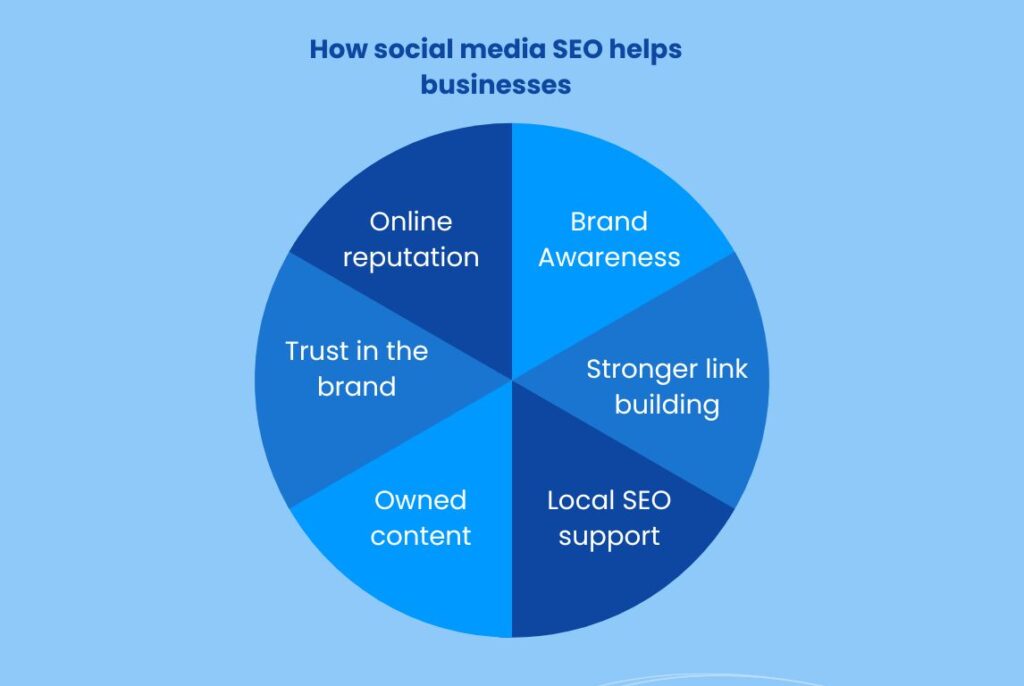
Brand awareness
We know Google is the world’s #1 search engine, but social media platforms like Facebook, Instagram, Twitter, YouTube, and LinkedIn are also seeing close to a billion searches a day.
Many of the searches on social media correspond to potential customers looking for local brands they wish to support. By optimizing your content, more customers can become familiar with your brand, boosting awareness.
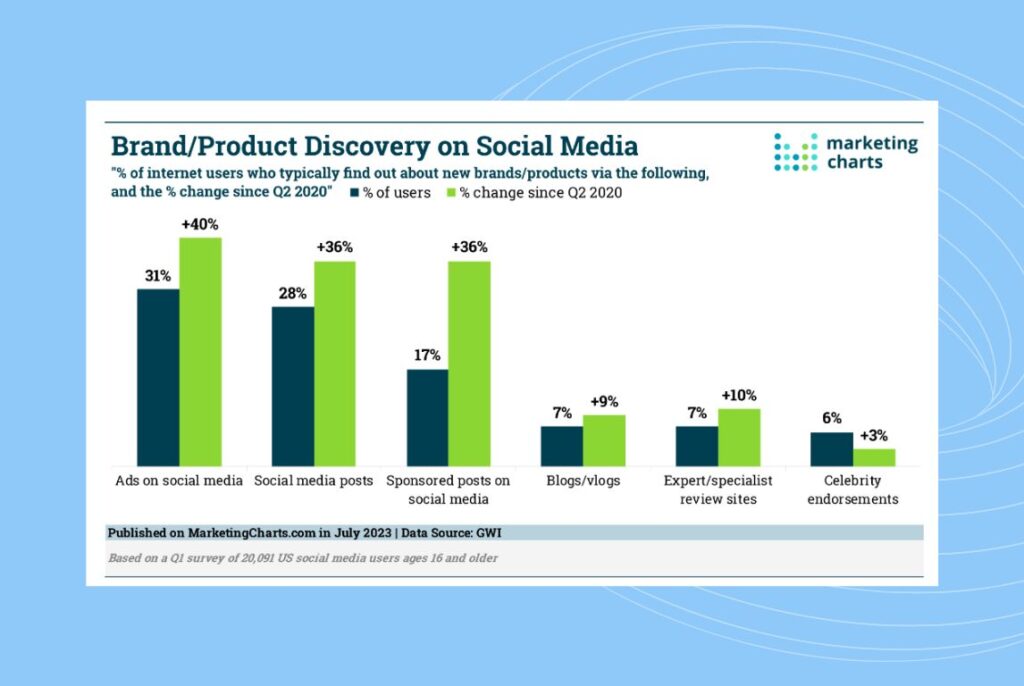
In this case, social media SEO plays a significant role in supporting local businesses:
- Optimizing your content for keywords you wish to be discovered in hashtags and captions can help customers find you easily on social media.
- When social media users find your business on social media, they are likely to interact with your content, such as links, photos, and videos posted there. This helps improve traffic and authority for your blog posts and product pages.
- Such signals indicate to Google that you are a legitimate business and will eventually help in local SEO rankings.
Social media SEO can introduce your content to people who may not have been looking for it but love it nonetheless.
Link building
Google analyzes a business’s authority, trustworthiness, and expertise via several factors, of which external links are one of the important ones. Link building is challenging for local businesses as it takes a long time for other marketers, users, and customers to see their content and link to it.
Optimizing your content for the right keywords and content on social media can help you improve the visibility of your content. Creating shareable content improves the likelihood of external linking and immensely impacts search rankings.
Another advantage is that your content reaches your target audience sooner via social media than any other method. This means you have more chances of securing relevant, high-quality links via this channel than typical channels.
Local SEO support
Ranking higher for local search queries is essential for businesses to be discovered and improve their conversion rate via Google. Of the many local SEO ranking factors, accuracy in NAP is one of the most significant.
Social media profiles can help by giving you another place to publish your NAP information for Google to cross-reference, building further trust in your business.
You can also reach local customers by increasing your presence on social media and utilizing local search-centric keywords and phrases on your content posted to social media. As more local customers discover you, they will rate and review you on your Google Business Profile, improving your chances of ranking in the top three results.
Owned content
Owned content refers to the content you own and can publish for free, including content on social networks, email marketing, websites, digital assets, and online property.
The fact that you own this content makes it a helpful tool in your SEO and social media strategy, as you can organically reach audiences.
A high traffic surge on owned content also ensures that Google sees your business as an authority in the domain, helping your search engine rank significantly.
Trust in the brand
A successful SEO and social media campaign can build trust and credibility for your business. Studies have found that consumers trust online reviews and personal recommendations for most purchases. Improving discoverability on social media can help businesses reach a wider audience and become familiar soon.
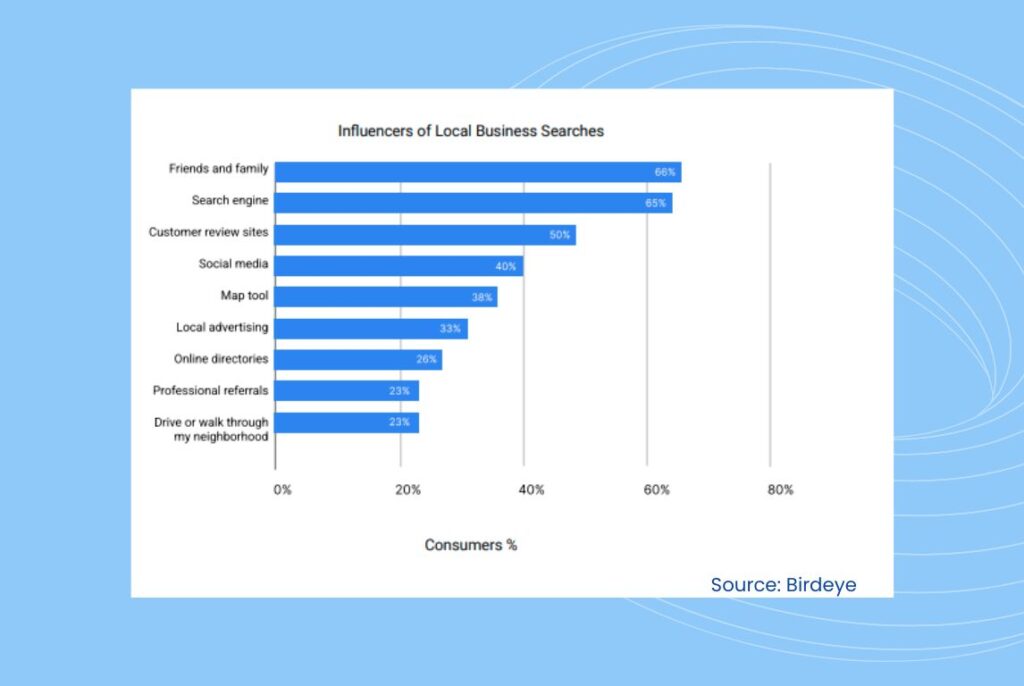
As social media users relish sharing content with friends, family, and like-minded audiences, your business develops trust through word-of-mouth with social shares.
Connecting SEO and social media can help increase the likelihood that a user will come across your content more regularly and eventually trust to make the first transaction.
Online reputation
When potential customers turn to social media channels to discover a brand, they also use it as a tool to evaluate its reputation. Businesses must make sure that the customers see the right content, which they can by optimizing for the right keywords and hashtags.
Social media platforms can help boost online reputation when businesses share customer feedback, testimonials, and user-generated content with the right keywords. This puts the positive content right at the top of all search queries improving brand reputation.
Effective platforms for social media SEO + Top tips
Each social media platform is unique and needs a specific approach to make it an effective tool in your marketing strategy. Here is a list of the top social media platforms you can leverage with the top tips to grow on these channels.
YouTube SEO tips
2 billion users engage with YouTube content every month. Thanks to YouTube Shorts, more and more people are engaging with the platform for both long-form and short-form content. That gives you a prime opportunity to market your products and services to various audiences using captivating video content.
- Make sure that you include the target keywords in your video title, video description, and hashtags.
- You can also include long-tail keywords in question format as “How-to” content ranks higher.
- Add relevant categories to your YouTube page.
- Include your business’s website, Name, Address, and Phone number in all relevant fields.
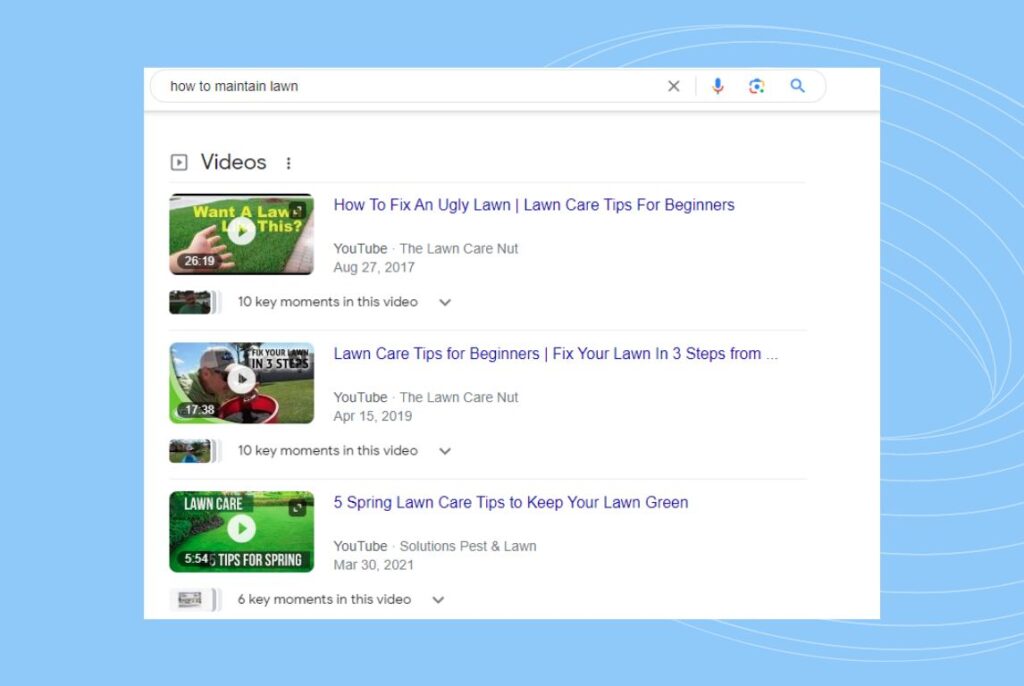
Twitter SEO tips
Twitter and social media SEO go hand in hand. This platform is one of the first places customers visit to interact with brands. You can improve your visibility on Twitter by:
- Including keywords in your Twitter profile
- Adding business NAP and website details to your Twitter bio
- Choose the username carefully. Include your business location and create separate handles for each location if you are a multi-location business
- Share your external content by repurposing it into threads and linking it back to your website to boost traffic.
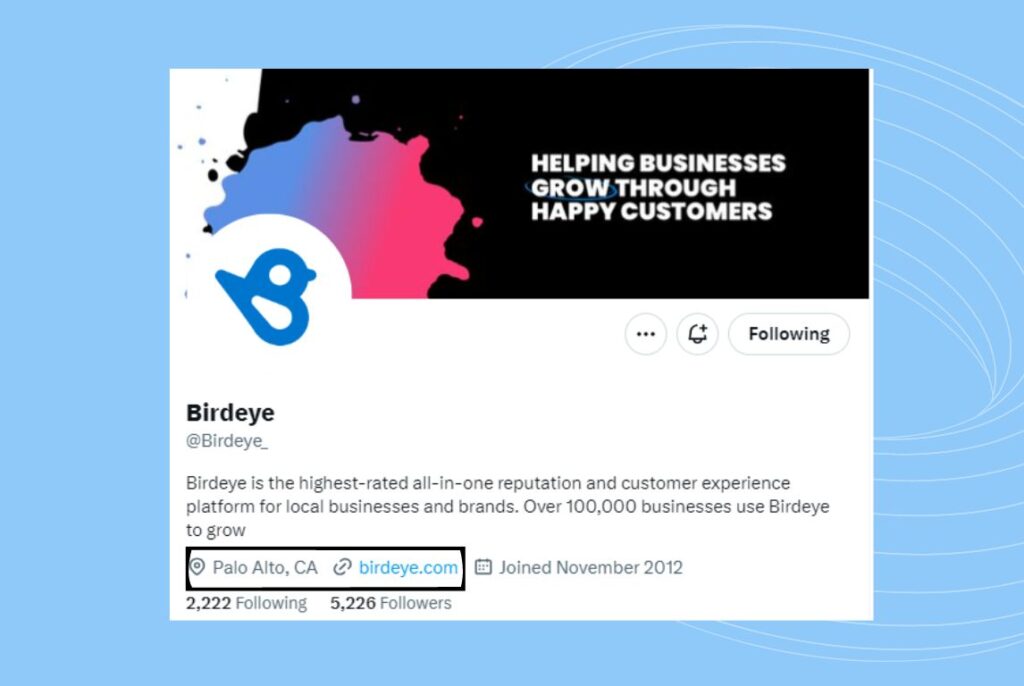
Facebook SEO tips
Some 2.9 billion people use Facebook every month. It remains to this day a social media marketing powerhouse. And despite predictions, this will likely be the case for quite a while. That’s why Facebook is prime for SEO.
On Facebook, you can boost visibility by:
- Adding keywords to your profile
- Adding your store location to the bio
- Using locally-relevant keywords for your business in content descriptions
- Encouraging customers to check-in to your business when they visit your store
- Inviting customers to write reviews/recommendations mentioning your store location on your Facebook profile.
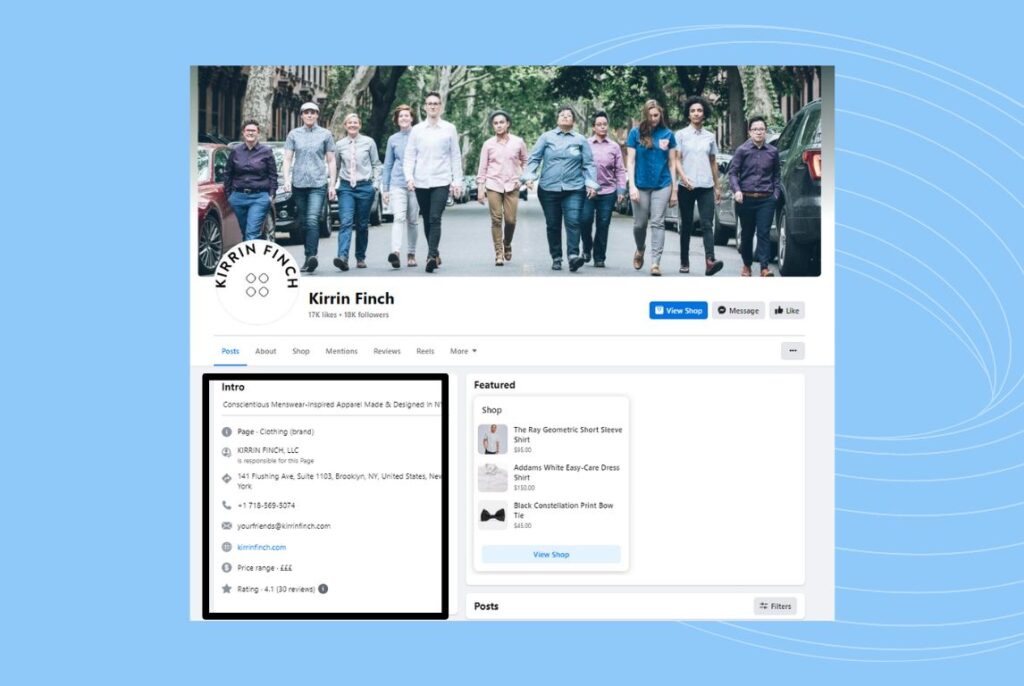
Instagram SEO tips
Four out of five people believe a brand they see on Instagram is authentic. That’s why Instagram is an excellent platform for marketers and influencers to feature a product or service and rack up. After all, you can build quite a bit of trust and rapport with your Instagram audience.
Not only that, but you can also link back to your website in your bio. Doing so will help convert audiences into direct leads, particularly when you consider that using Instagram can help your marketing team reach 1.5 billion users.
On Instagram, make sure to add:
- Business Name, Address, and Phone number in bio
- Store location link to Google Maps
- Website and E-commerce store link
- Relevant hashtags to your content
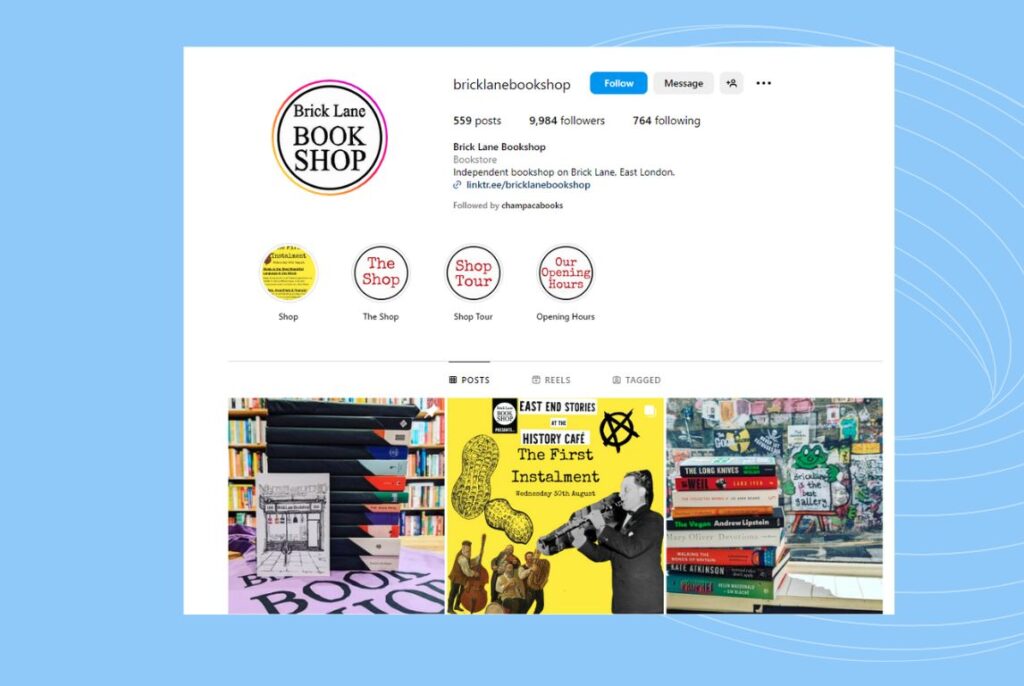
LinkedIn SEO tips
LinkedIn is very popular with marketers for generating leads as the platform’s study shows four out of five of its 900 million members drive business decisions. Research also suggests that 62% of all B2B leads come from LinkedIn.
LinkedIn is, therefore, well-placed as an SEO tool and will help your business get search results when relying on the keywords and hashtags included with posts.
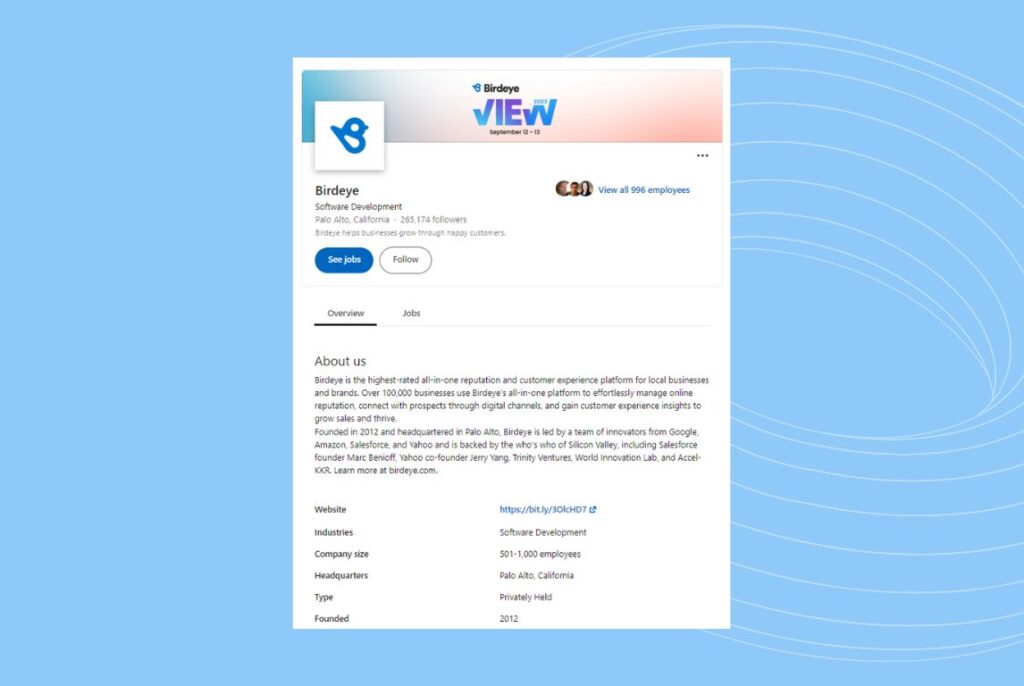
No matter the platform you use, collecting as much data about your web traffic as possible is important to understand your current user engagement, whether from Google Analytics or some other platform. And make sure you do your homework when it comes to keyword research.
FAQs about social media SEO
Facebook SEO means including the business’s NAP, website, and keywords to increase your business’s visibility, reach, and ranking on Facebook Feeds.
To combine SEO and social media, you can use the right keywords and hashtags to generate the right content signals to get discovered by customers.
Yes, on social media platforms like Facebook, Twitter, Instagram, and TikTok, hashtags can definitely help improve visibility and help in SEO
Yes, we need SEO for social media to increase your branded content’s visibility and brand awareness and convert untapped customers into leads.
Conclusion
A winning social media SEO strategy involves using social media as a tool to increase your visibility and climb higher on search results. Businesses can reach the right audience using relevant keywords, hashtags and creating helpful content.
Maintaining consistency and publishing regularly on social media platforms is also essential to see results in your efforts. Birdeye can help businesses publish to multiple platforms from a single easy-to-use dashboard while customizing content to engage audiences.

Originally published



